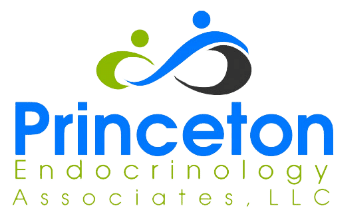Hirsutism is a condition that causes women to develop dark, coarse hair growth on the face, chest, abdomen, inner thighs, and back. The highly skilled physicians at Princeton Endocrinology Associates in Princeton, New Jersey, work with their patients to determine the underlying cause of their condition and develop personalized treatment plans. To learn more, call the office or book an appointment online today.
Hirsutism Q & A
What causes hirsutism?
In most cases, hirsutism is caused by an underlying problem with your hormones. Women with hirsutism often suffer from excessive male hormones (androgens) like testosterone.
There are a number of conditions that can cause women to have abnormal hormone levels including:
- Polycystic ovary syndrome (PCOS)
- Cushing syndrome
- Congenital adrenal hyperplasia
Certain medications used to treat endometriosis, hair loss, and seizures can also cause hirsutism.
How do I know if I have hirsutism?
For some women, hirsutism can be difficult to distinguish from normal body hair growth. Hirsutism causes thick, dark hair growth in areas where the hair is usually fine and thin. If your condition is caused by high androgen levels, excessive body hair growth may be accompanied by symptoms like acne, increased muscle size, or deepening of your voice.
If you suspect you’re suffering from hirsutism, the specialists at Princeton Endocrinology Associates can provide you with an accurate diagnosis.
How is hirsutism diagnosed?
During your appointment, your doctor performs a thorough evaluation, including a physical exam and discussion of your medical history, to determine the cause of your excessive body hair growth. You’ll also have blood work performed to measure your hormone levels.
In some cases, you may need a pelvic exam or ultrasound to assess your reproductive organs. Once you’ve been diagnosed, your doctor works with you to develop your personalized treatment plan.
What treatments are available for hirsutism?
Treatment depends on the underlying cause of your condition. The goal of hirsutism treatment is to address your underlying hormonal condition and eliminate the excessive hair growth.
Depending on your diagnosis, your treatment plan may include:
- Oral contraceptives (birth control pills)
- Anti-androgen medication
- Topical cream
- Electrolysis or laser hair removal
If you’re overweight, losing weight may help reduce your androgen levels and improve your condition.
Although hirsutism can be embarrassing, it is highly treatable. To find out which treatment is right for you, book an appointment by phone or online today with Princeton Endocrinology Associates.










